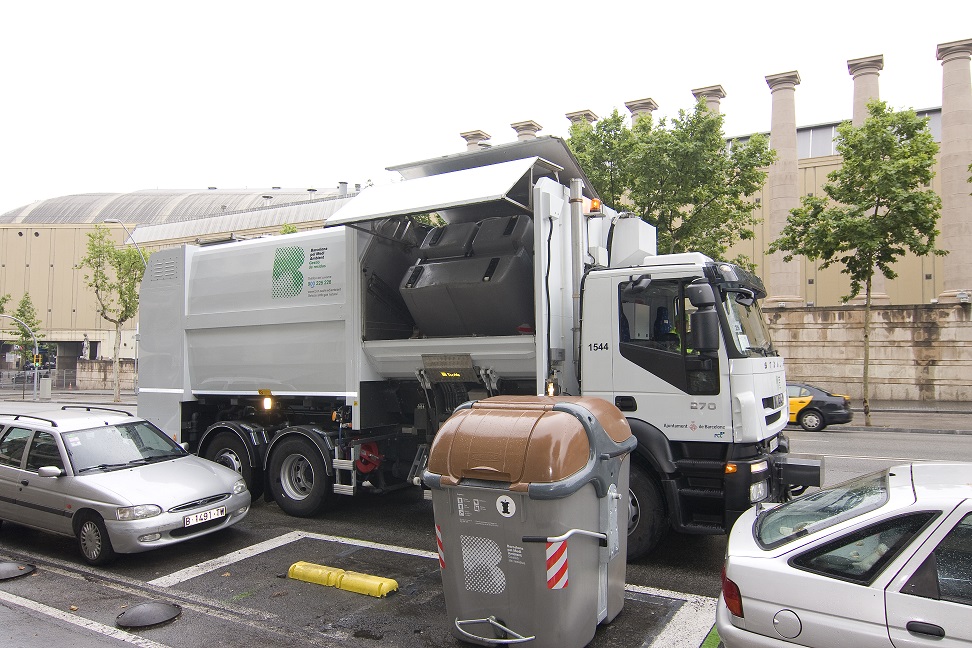FCC participating in Methamorphosis project to convert waste treatment centres into bioenergy factories
FCC participating in Methamorphosis project to convert waste treatment centres into bioenergy factories

The project's technology will enable waste treatment plants to achieve higher efficiency while reducing greenhouse gas emissions. The project, in which FCC, the Citizen Services Group, is participating through its subsidiaries FCC Aqualia and FCC Medio Ambiente (the Spanish brand for FCC Environment), is co-financed by the EU's LIFE programme and has a total budget of 3.6 million euro. SEAT and FCC Medio Ambiente vehicles will drive 120,000 kilometres to test the biogas produced by the project.

The project, headed by FCC Aqualia in partnership with Area Metropolitana de Barcelona (AMB) (Association of Metropolitan Barcelona Municipalities), FCC Medio Ambiente (the Spanish brand for FCC Environment), Gas Natural Fenosa, the Catalan Energy Institute (ICAEN) and SEAT, seeks to develop an innovative process for enhancing biofuel production from municipal, agricultural and industrial waste. A project progress report was presented at Biometa 2016, held in Barcelona in May.
Methamorphosis, which was granted funding in 2014 by Europe's prestigious LIFE programme (which supports actions to mitigate climate change), seeks to increment biogas production from municipal waste leachate by modifying and innovating processing techniques. The gas produced by this methanisation process is enriched for use as fuel in vehicles, which contributes to reducing greenhouse gas (GHG) emissions; in the future, it may be injected into the natural gas grid.
The project envisages the installation and operation of prototypes to increase biogas output and enrich its biomethane content at the Ecoparc 2 municipal solid waste treatment centre in Montcada i Reixac (Barcelona), which is owned by AMB and managed by FCC Medio Ambiente. The prototypes are based on three innovative technologies developed by FCC Aqualia: an anaerobic membrane bioreactor (AnMBR), a patented system for autotrophic denitrification (ELAN®), and a patented upgrading facility that will produce enriched biomethane from biogas (ABAD®).
This new process will enhance efficiency while also reducing greenhouse gas emissions, by cutting energy demand by 70% and reducing CO2 emissions by 80% with respect to conventional processes. ICAEN will assist in transferring the knowledge obtained from the project and in enhancing its replicability.
Methamorphosis represents a step forward in extracting energy from waste and is an important contribution to a circular economy, since it turns a waste treatment centre into a fuel production facility with the ability to feed both vehicles and the distribution network.
The efficiency of the enriched biomethane will be demonstrated in tests with SEAT vehicles monitored by that company's engineers and in FCC Medio Ambiente vehicles that currently use natural gas, in a series of tests totalling 120,000 kilometres per vehicle.
The test with FCC Medio Ambiente vehicles will be conducted in normal conditions as the vehicles perform their day-to-day tasks. GHG emissions are expected to be reduced by 30% with respect to diesel, and the impact of biomethane on performance, engine components, fuel consumption and emissions will be assessed in the test fleet, by comparing with existing data from using network’s natural gas.
Through this project, the FCC Group is furthering the development of a fuel from renewable sources that is both cleaner and more environmentally friendly than existing liquid fuels, produces lower emissions of harmful particles, improves air quality, and helps reduce dependence on fossil fuels. The project is a clear manifestation of FCC's technology innovation policy, which is focused on providing smart services to citizens and on the practical application of synergies derived from combining the experience of our business areas — Water and Environment, in this case.
The FCC Group has over 115 years of experience in providing services to citizens. It is a world leader in environmental services, end-to-end water management, and infrastructure development. It currently employs over 50,000 people and operates in 25 countries. In 2015 it obtained close to 6.5 billion euro in revenues, 47% from countries other than Spain.
FCC Aqualia is the water management subsidiary of FCC, one of Europe's leading citizen services companies. It is the largest Spanish company in its industry, the third-largest private water company in Europe and the seventh-largest in the world, according to the most recent ranking by Global Water Intelligence (GWI) magazine; the company serves 22.5 million people. It currently operates in 1,100 cities in 21 countries.
FCC Environment is the business area of the FCC Group that provides environmental services to 53 million people in approximately 5,000 cities in 13 countries, ranging from end-to-end management of municipal and industrial waste through the full range of municipal services (waste collection, street cleaning, green area maintenance, etc.) to restoration of contaminated soil.
We process close to 20 million tons of waste per year in over 200 recycling and treatment plants, using the full range of technologies, from mechanical and biological treatment to the most advanced energy-from-waste solutions.
FCC Environment treats waste as a resource, reusing and recycling as much as possible and recovering energy from the remainder.








